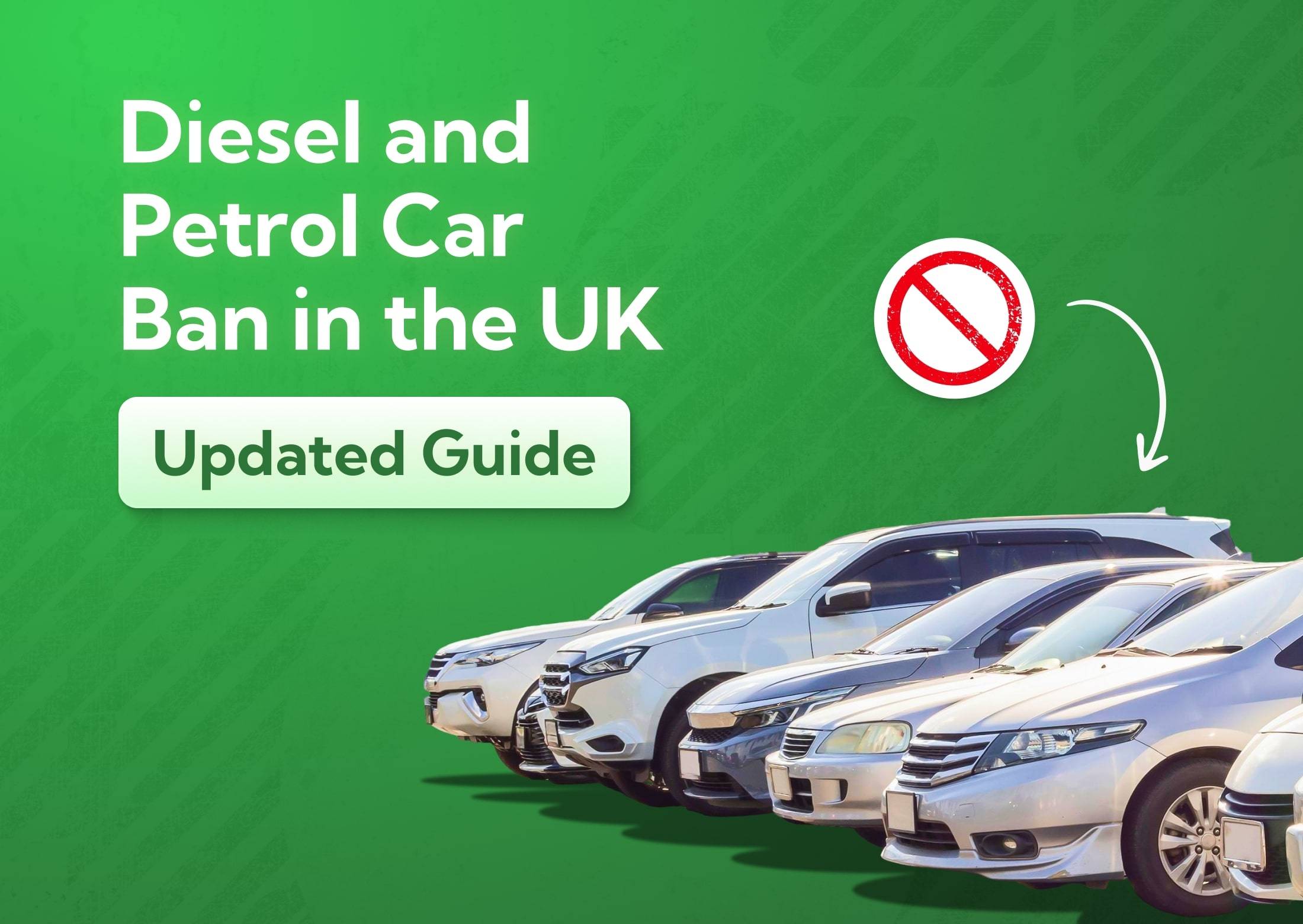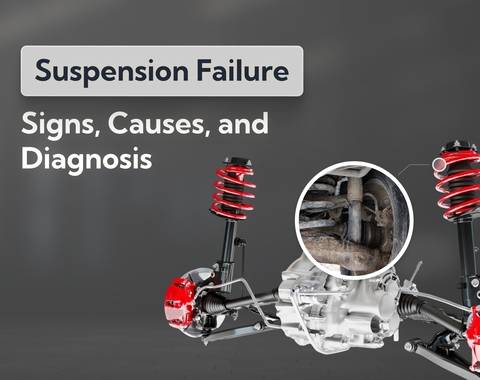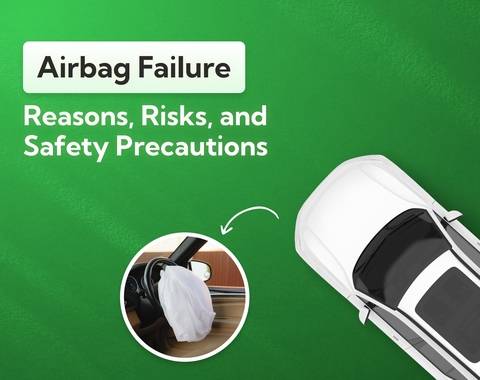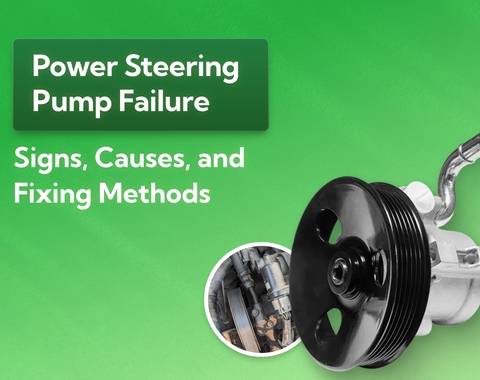Petrol and Diesel Car Ban (Updated Guide)
The Government has recently announced the ban of the sale on new petrol and diesel cars from 2030. We explain what this means for you and the automotive industry.
Last updated: 16th October, 2025

Anthony Sharkey is COO at New Reg Limited (Car.co.uk, Trader.co.uk, Garage.co.uk), driving innovation in vehicle recycling, logistics, and customer experience.

Listen to this story
In mid-November, the government announced it was bringing forward the ban on the sale of new petrol and diesel cars. Although the date had previously been 2035, critics of the plan described this an “unambitious” – so the government responded by setting a new date: 2030.
Although the types of vehicle we see on the roads won’t change as soon as we turn our calendars from 2029 to 2030, there will be some noticeable changes to the motoring world.
Here, we’ve explored a few questions about what the 2030 petrol and diesel new car ban will mean – and how it will impact different people and different types of vehicle.
What's in this article
- 1. Why is the sale of petrol and diesel cars being banned?
- 2. What happens if you’ve got a petrol or diesel car when the ban comes into force?
- 3. Are hybrids included in the ban?
- 4. What will replace petrol, diesel, and hybrid vehicles?
- 5. Will the value of my petrol or diesel car change?
- 6. Will you still be able to buy second-hand petrol or diesel cars after the ban?
- 7. Will classic cars be affected by the ban?
- 8. Will the price of electric cars come down after the petrol/diesel ban?
- 9. Are commercial vehicles included in the ban?
- 10. How will the ban affect you?
Why is the sale of petrol and diesel cars being banned?
The ban on new petrol and diesel cars is actually part of a bigger plan the government is implementing. The United Kingdom has made a commitment to reduce carbon dioxide (CO2) emissions to zero by 2050 - and reducing tailpipe emissions is seen as being a big part of this plan.
For fans of the internal combustion engine (ICE), an outright ban on sales might sound like a huge step. In reality though; the sale of electric vehicles is picking up such pace that many motor industry experts feel like the ban is really just putting a definite end to a technology that is already showing signs of fading out.
Battery operated electric car sales increased by over 160% during 2020 - and while this is impressive enough, no one needs reminding that this is against the backdrop of Covid-19; resulting in a year which has seen some of the lowest new vehicle sales in memory. In an ‘ordinary’ year, it’s reasonable to assume those figures could have been significantly higher. One thing’s for such; today, electric vehicles are less of a niche-interest - and more of an obvious choice for a growing number of drivers.
What happens if you’ve got a petrol or diesel car when the ban comes into force?
If you’re worried that the ban will mean you have to wake up on Jan 1st 2030 and use our scrap car service to sell your petrol or diesel car - don’t panic!
Although the ban is being talked about in terms of ‘petrol and diesel cars’ - it actually only applies to the sale of petrol and diesel cars. You won’t have to get rid of your traditionally fuelled car - you just won’t be able to buy a new one.
What the experts say

Steven Jackson OBE
Are hybrids included in the ban?
So, what about hybrid vehicles? Will the sale of part petrol/diesel and part electric vehicles be outlawed too?
The answer is no - not yet at least. Petrol and diesel cars are seen as being the biggest part of the emissions problem - so that’s where the focus is going to be first. However, hybrid cars aren’t far behind; in 2035, the sale of hybrid vehicles will also be banned. Again though, this won’t mean scrapping your current hybrid - it will just mean not being able to buy one new from a dealer.
What will replace petrol, diesel, and hybrid vehicles?
When you walk into a car dealership in the future, your fuel choice will be limited - and almost all manufacturers are shifting their focus towards battery electric vehicles (EVs).
Powering up an EV is less like starting an engine and more like switching on a light. A traditional engine is replaced by a large lithium-ion battery and motors that drive the wheels.
The experience of driving an electric car is different from a traditional petrol or diesel car - there’s no transmission for starters. No transmission means no clutch pedal - so driving an EV is more like driving an automatic vehicle. Also, the power delivery takes a little getting used to too - a sudden press of the accelerator delivers instant power to the wheels; so EVs are quick off the mark if you’re zipping around town or overtaking.
Of course, there are some other options - and hydrogen fuel cell electric vehicles (FCEV) are one of those. This type of technology sees hydrogen atoms split by a reaction inside a fuel cell on board the car; making electricity. Again, this electricity drives motors that power the car. Although the tech is innovative and clean, the kind of infrastructure needed to support FCEVs isn’t as widespread as battery EVs in the UK, so EVs are expected to lead the way.
Will the value of my petrol or diesel car change?
It’s reasonable to say that petrol and diesel vehicle values will almost certainly fall when the sale of new versions is banned. However, it’s worth remembering that the value of petrol and diesel vehicles is expected to decline steadily as the ban approaches too. For some, it may be worthwhile scrapping your car sooner rather than later.
If you’re curious about what your vehicle is worth now, you can check it using our quick valuation tool. As Ultra-Low Emissions Zones (ULEZs) are brought in and expanded around the UK, it will become less and less practical to own and use a petrol or diesel vehicle. As a result, demand will fall, and values will go down.
Will you still be able to buy second-hand petrol or diesel cars after the ban?
Since the ban is only going to affect new diesel and petrol cars, you will still be able to buy and sell these traditionally fuelled vehicles. The same applies to hybrids after the 2035 ban too.
As we’ve already mentioned - you can expect your petrol or diesel car to be worth a lot less after ban - and you could see big reductions on ‘pre-registered’ vehicles that are for sale through dealerships. Pre-registered vehicles are those that have been delivered to dealers but are not considered brand new - as the dealership has registered the vehicle with the DVLA and is therefore officially the first owner.
Although there will be plenty of deals on existing petrol and diesel stock vehicles as the ban approaches, it’s also fair to assume that there will be big incentives to swap to electric in the coming years too.
Will classic cars be affected by the ban?
Since you will still be able to keep your petrol or diesel vehicle after the ban, the owners of classic vehicles are unaffected.
In fact, vehicles that are officially considered ‘classic’ by the DVLA are exempt from most ULEZ rules too - so in many cases, classic cars side-step all bans and emissions rules, even if they have large petrol or diesel engines. This is generally because classic vehicles are rarely used as everyday transport.
Will the price of electric cars come down after the petrol/diesel ban?
It’s difficult to say with certainty what will happen to the price of electric vehicles in the future - but almost all indications are that they will fall - making them more accessible to all motorists.
At the moment, the cheapest 4-door passenger electric car in the UK is the Skoda Citigo-e iV - at around £17,500 (including government grant). Now, the cheapest petrol option in the same car is around £9,000 - so there’s still a big difference between what can be considered truly ‘cheap’. However, as demand for EVs grows, manufacturers can produce larger quantities - and costs are driven down.
Are commercial vehicles included in the ban?
Yes, they are. Although the ban is referred to as applying to ‘cars’ in most of the media - it’s actually all petrol and diesel-engined vehicles; so vans and lorries are very much included.
How will the ban affect you?
What the ban means for you will probably involve sitting down with a calculator and looking at your motoring costs closer to the time.
If you’re driving a petrol or diesel car at that stage, there’s a good chance that you’ll be paying more in tax or road use charges than EV owners - and you’ll probably have lots of manufacturer and government incentives that are nudging you towards going electric. Of course, if your mileage is very limited, then it might make sense to hold on to your traditionally fuelled car for the occasional trip to the supermarket.
Whatever kind of fuel is right for you in the short term, there’s no doubt that the electric revolution is here. The average lifespan of a petrol or diesel vehicle is around 14 years - so it’s safe to predict that most vehicles on the road in 2044 and beyond will be electric.
If the sound of a feisty four-cylinder or grumbly V8 is music to your ears and you just can’t stand the thought of saying goodbye to the internal combustion engine; now might be a good time to pick up a future classic, so you’ve got a bit of motoring history to hold on to.
You can keep an eye on what your car is worth by getting an up to date valuation using our online tool.
About Car.co.uk

Share on
Latest news & blogs










